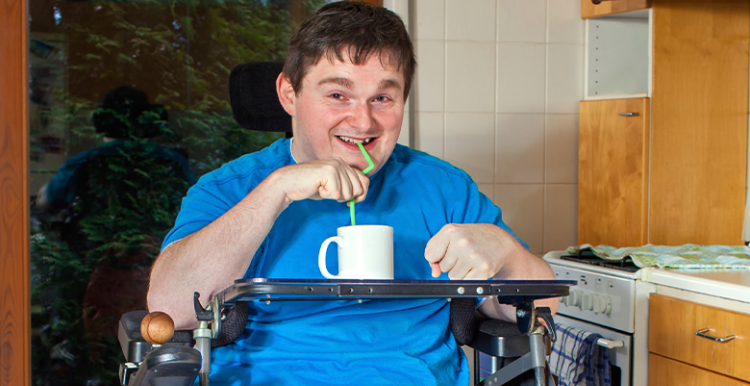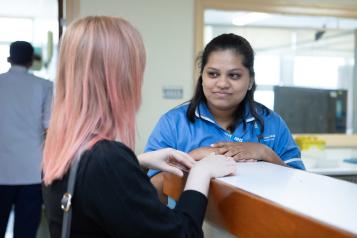How new Health and Care Experience profiles can help improve care

Listening to people and learning from their experiences offers the opportunity to change care for the better. And can help services understand in much more detail the reasons why things may not be working.
Earlier this year, we worked with Healthwatch England on a project to develop a qualitative research approach that local health and care systems can use.
And the resulting Health and Care Experience profile methodology helps health and care decision makers look at how services are working together for people in their area, how this compares to the national picture and what they can do to improve care.
This national project was funded by NHS England and Improvement - and we helped pilot it here in Cambridgeshire and Peterborough.
Checking care is joined up
Many of us depend on a number of different services provided by a range of different organisations, including NHS, local authority, voluntary and community sector providers.
And as health and care organisations start to work more closely together as Integrated Care Systems (ICS), it is important they have a way of checking how joined-up care really is. Something that looks not just at how well individual services are working, but also minds the gaps.
This is particularly the case for those of us who are reliant on lots of different services or who are moving from one part of the health or care system to another.
We, at Healthwatch, often see that it is not the quality of individual services or the care provided by specific clinicians that people have issues with. It is the gaps between them, and the way in which they relate to their lives that make the difference.
Understanding integration
Health and Care Profiles are one of a number of research methods developed as part of an NHS project called 'The Integration Index' to help local ICS examine how well their services join up.
The King's Fund – a national charity that works to improve health and care – reported that people’s experiences of health and care services are usually collected and understood at the level of individual providers (Wellings 2019).
And so, we know about people’s experiences of individual services, but not about whether these services are working well together.
Read more about the different evaluation methods in the King's Fund guide to 'Understanding Integration'.
What we've done in Cambridgeshire and Peterborough
We ran two local projects, developing profiles for people from local South Asian communities with diabetes and about young people's experiences of moving from children to adults' mental health services.
The national picture
Healthwatch England mapped the national expectations and experiences for these two groups, looking at national policies, guidance and reports on patients' experiences.
The local picture
We looked into local strategies, 'patient pathways' and patient experience data. And examined the difference between the expected provision and people’s experience of care.
As well as interviewing patients about their experiences and ideas, we also talked to local voluntary, community sector and other providers about their experience of supporting individuals in these groups.
Our findings were shared with the local health and care organisations involved in these services to help them improve care.
Find out more - young people's profiles
Find out more - people from South Asian communities with diabetes profile
The Health and Care Experience profile methodology essentially describes our work in simple steps. They look at the standard of care people should be expecting, then compare that to the reality. The difference between the two shows where improvements are needed. It was a privilege to be invited to help develop this way of working and I am hoping that it will be used to improve health and care services across the country.
Local Healthwatch have also run pilots in other parts of the country, developing and testing the methodology by looking at the experiences of five groups of people:
- Children and young people with mental health support needs who are becoming adults.
- People with diabetes who are of South Asian origin.
- People with learning disabilities and their unpaid/family carer, with a recent experience of hospital discharge.
- Black men with a number of health needs including a recent experience of cancer.
- Women with a number of health needs including a recent experience of a heart condition.
Developing Health and Care Experience Profiles
How to use the Health and Care Experience profile methodology to understand the needs of a population group.
- Review the existing national and local policies, strategies and guidance
Look at the relevant existing documents designed to support integrated care for the group you have identified. This will tell you what local and national health and care system leaders think care should look like. - Assess existing national and local user experience data
Look at any existing patient or service-users' experience feedback for this group and compare how well this does or doesn't match with the expectation of care. - Find out about peoples current experiences
Talk to a sample of individuals from your identified group through one-to-one interviews or focus groups. Ask them about their recent experiences of services and ideas for improvement. These up to date insights can identify whether existing user experiences/feedback systems are asking the right questions. And give a proper understanding of how people really feel about integrated care.

